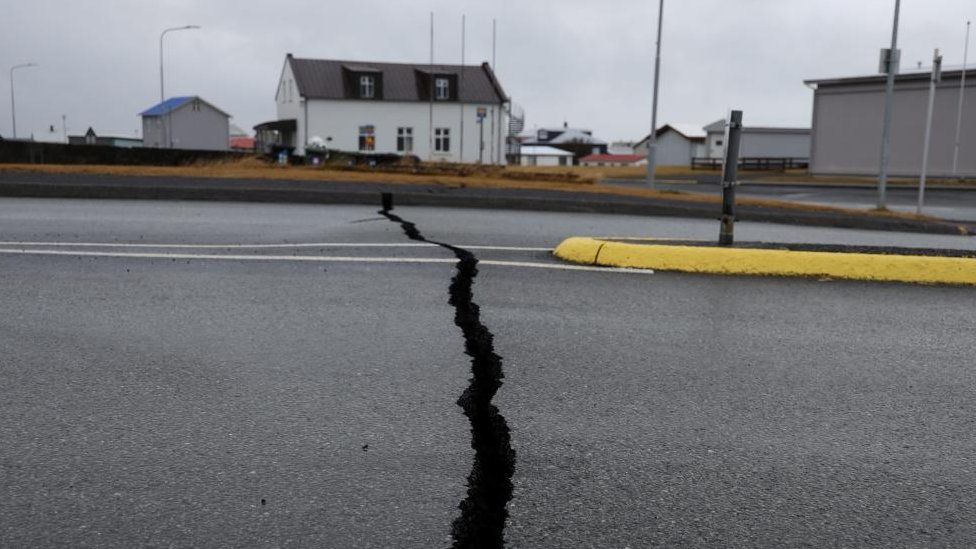-

-
-
Loading

Loading

Scientists have stated that seismic activity has decreased in south-west Iceland, but they still anticipate a volcanic eruption. While over 500 earthquakes have occurred on the Reykjanes Peninsula, they have been less intense than in previous days. However, experts are concerned about a 15km-long river of magma beneath the peninsula, which poses a threat to the evacuated town of Grindavik. Many of the tremors have occurred under Grindavik, leading hundreds of people to flee. The town roads have also experienced cracks due to subsidence. Despite its proximity to Keflavik International Airport, Grindavik's flights are operating normally. Travelers are wary of a repeat of the disruption caused by the Eyjafjallajokull eruption in April 2010, which resulted in the cancellation of over 50,000 flights and chaos in the European air industry for a week. However, there have been no reports of similar air pollution so far. Gisli Gunnarsson, a music composer who was forced to leave Grindavik, expressed his fear of never seeing his home again. Thousands of tremors have been recorded around the nearby Fagradalsfjall volcano, which had experienced 800 years of dormant volcanic activity prior to the eruption earlier this year. Iceland has declared a state of emergency, and the Icelandic Meteorological Office has warned of a significant eruption risk. Professor Thor Thordason, a volcanology expert at the University of Iceland, stated that the magma is less than 800m below the surface, indicating an imminent eruption. Unfortunately, it is believed that the most vulnerable area to the eruption is within the boundaries of Grindavik.